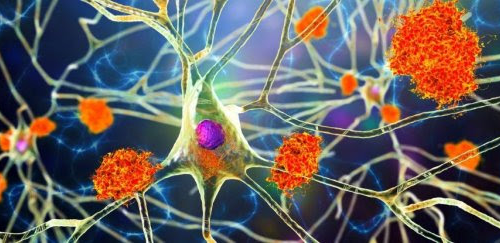By FELICITY NELSON Amyloid plaques in Alzheimer’s disease (Kateryna Kon/Science Photo Library/Getty Images)A study of around 500,000 medical records suggested that severe viral infections like encephalitis and pneumonia increase the risk of neurodegenerative diseases like Parkinson’s and Alzheimer’s. Researchers found 22 connections between viral infections and neurodegenerative conditions in the study of around 450,000 people....
Tag: <span>Alzhiemers</span>
Portable device detects Alzheimer’s and Parkinson’s biomarkers on the spot
By Ben Coxworth The prototype device, which is currently being commercialized by biotech company Ampera LifeDavid Baillot/UC San Diego Jacobs School of Engineering Because of the logistics and invasive procedures involved, many people put off getting tested for Alzheimer’s and Parkinson’s diseases. Thanks to a new portable device, however, such testing could soon be performed non-invasively...
The health care promises we cannot keep
Reviewed by James Ives, M.Psych. (Editor) It was a promise Matt Perrin wasn’t able to keep. “I’ll never take away your independence,” he’d told his mother, Rosemary, then 71, who lived alone on Cape Cod, Mass., in a much-loved cottage. That was before Rosemary started calling Perrin and his brother, confused and disoriented, when she...
Cards and board games help people staying mentally sharp later in life
Have you noticed that many older people love playing cards and board games. This is their way to socialize and have some fun. However, what they may not know is that this fun free time activity also helps them protecting their thinking skills. This what a new study from the University of Edinburgh has found....
Escaping Alzheimer’s
There is, in Colombia, a family with a tragic legacy of forgetfulness. “People in this large family get Alzheimer’s like clockwork at age 45-50,” said UC Santa Barbara neuroscientist Kenneth S. Kosik, the campus’s Harriman Professor of Neuroscience and co-director of the Neuroscience Research Institute. Their aggressive, genetic form of the disease has been passed...
Study reveals link between alterations in RNA splicing and Alzheimer’s disease
Reviewed by Kate Anderton, B.Sc. (Editor) A collaborative study published today in the journal Cell Reports provides evidence for a new molecular cause for neurodegeneration in Alzheimer’s disease. The study, led by researchers at Baylor College of Medicine and the Jan and Dan Duncan Neurological Research Institute at Texas Children’s Hospital, integrates data from human brain autopsy samples...
Alzheimer’s subtypes could affect future treatments, Mayo Clinic researchers find
MAYO CLINIC JACKSONVILLE, Fla. — Despite decades of scientific scrutiny, Alzheimer’s disease researchers have yet to work out its cause or treatment. Understanding what underlies its three distinct subtypes is thought to be a promising new research avenue. In a new study in JAMA Neurology, a team of neuroscientists at Mayo Clinic in Florida led...
Blood test is highly accurate at identifying Alzheimer’s before symptoms arise
Posted Yesterday Up to two decades before people develop the characteristic memory loss and confusion of Alzheimer’s disease, damaging clumps of protein start to build up in their brains. Now, a blood test to detect such early brain changes has moved one step closer to clinical use. Researchers from Washington University School of Medicine in St. Louis report that they...
High-energy lasers could be used to treat Alzheimer’s disease in the future
Far-infrared free-electron laser is useful in breaking down protein aggregates and has attractive applications in medicine and bio material engineering TOKYO UNIVERSITY OF SCIENCE Amyloid fibrils are a type of self-assembled proteins/peptides that take on a stacked sheet-like formation. Amyloid fibril aggregates are known to be a cause of several diseases–including Alzheimer’s–and therefore, it is...
Opioid analgesics increase the risk of pneumonia among persons with Alzheimer’s disease
by University of Eastern Finland Opioid analgesics were associated with a 30 percent increase in the risk of pneumonia in persons with Alzheimer’s disease, a recent study from the University of Eastern Finland shows. The risk was most pronounced in the first two months of use. This is the first study to investigate the association between opioids and pneumonia in this population. The results were published in the Journal of Alzheimer’s Disease. The risk of pneumonia was highest among those...
- 1
- 2


